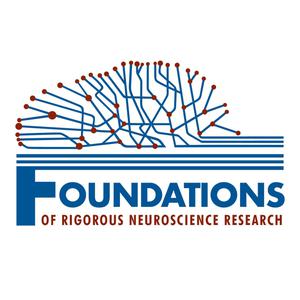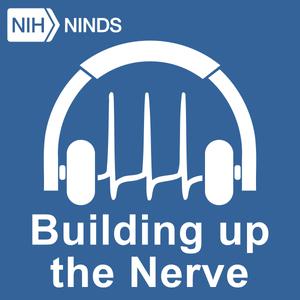
Pathways to Enhance Rigor: A Collection of Conversations
Society for Neuroscience
- 1 minute 9 secondsPathways to Enhance Rigor Trailer
“Pathways to Enhance Rigor: A Collection of Conversations” is a limited-series podcast featuring neuroscientists discussing ways to better embed rigor into every part of the scientific process, from experimental design to sharing with the public. These conversations highlight the past, present, and future of rigor in neuroscience and emphasize how individuals can contribute to creating a culture of rigor in their lab and beyond. This podcast is a part of the Society for Neuroscience’s Foundations of Rigorous Neuroscience Research (FRN) program. Supported by the National Institute for Neurological Disorders and Stroke (NINDS), FRN is designed to inform and empower neuroscientists at all career levels to enhance the rigor in their research and the scientific culture at large.
26 February 2021, 5:10 am - 9 minutes 57 secondsSetting the Foundations
The Society for Neuroscience’s (SfN’s) Foundations of Rigorous Neuroscience Research (FRN) program aims to inform and empower neuroscientists at all career stages to enhance the rigor and reproducibility of their research. Begin this series with Oswald Steward and Lique Coolen as they cover the genesis of the FRN program, the objectives of the podcast series, and the resources that you can access to enhance rigorous research practices in neuroscience. Pathways to Enhance Rigor: A Collection of Conversations is a part of the Society for Neuroscience’s (SfN’s) Foundations of Rigorous Neuroscience Research (FRN) program. This program is supported by the National Institute for Neurological Disorders and Stroke (NINDS), grant number 5R25NS112922-02. The FRN program is designed to inform and empower neuroscientists at all career levels to enhance the rigor in their research and the scientific culture at large.
26 February 2021, 5:09 am - 37 minutes 26 secondsBattling Bias in the Pursuit of Objectivity
When developing a study, there are many sources of biases that can affect experimentation or interpretation of results. Join Christie Fowler, Olavo Amaral, and Kip Ludwig as they discuss the various considerations neuroscientists must face to conduct research while minimizing bias and maximizing objectivity.
Pathways to Enhance Rigor: A Collection of Conversations is a part of the Society for Neuroscience’s (SfN’s) Foundations of Rigorous Neuroscience Research (FRN) program. This program is supported by the National Institute for Neurological Disorders and Stroke (NINDS), grant number 5R25NS112922-02. The FRN program is designed to inform and empower neuroscientists at all career levels to enhance the rigor in their research and the scientific culture at large.
26 February 2021, 5:08 am - 43 minutes 28 secondsDealing with Data
Join neuroscientists Letisha Wyatt, Jane Roskams, and Maryann Martone as they delve into the challenges neuroscience has faced regarding data storage, management, and sharing. They discuss the historical transition from analog to digital data, the complexities of neuroscience data, and paths forward to foster more sound data stewardship for the larger scientific community.
Pathways to Enhance Rigor: A Collection of Conversations is a part of the Society for Neuroscience’s (SfN’s) Foundations of Rigorous Neuroscience Research (FRN) program. This program is supported by the National Institute for Neurological Disorders and Stroke (NINDS), grant number 5R25NS112922-02. The FRN program is designed to inform and empower neuroscientists at all career levels to enhance the rigor in their research and the scientific culture at large.
26 February 2021, 5:07 am - 37 minutes 36 secondsCreating a Culture of Rigor
How can researchers shape modern scientific culture to incentivize more sustainable, rigorous science? Hear from Michael Lehman, Ghazaleh Sadri-Vakili, and Tanita Casci as they cover the critical importance of incentivizing rigorous research today, as well as ways you can advance rigorous research practices at any level in your career to invigorate the field. Pathways to Enhance Rigor: A Collection of Conversations is a part of the Society for Neuroscience’s (SfN’s) Foundations of Rigorous Neuroscience Research (FRN) program. This program is supported by the National Institute for Neurological Disorders and Stroke (NINDS), grant number 5R25NS112922-02. The FRN program is designed to inform and empower neuroscientists at all career levels to enhance the rigor in their research and the scientific culture at large.
26 February 2021, 5:06 am - 47 minutes 45 secondsRewarding Rigorous Science
Although there are many hurdles to enhancing rigor in neuroscience, one fact is clear: implementing rigorous research practices today will enhance the credibility of the field tomorrow. Wrap up this series with Emily Sena, Eric Nestler, and Walter Koroshetz as they discuss the rewards to conducting rigorous research, how institutions, journals, and funders can step up to enhance rigor across the field, and ways for individuals to shift the needle in tackling this collective challenge.
Pathways to Enhance Rigor: A Collection of Conversations is a part of the Society for Neuroscience’s (SfN’s) Foundations of Rigorous Neuroscience Research (FRN) program. This program is supported by the National Institute for Neurological Disorders and Stroke (NINDS), grant number 5R25NS112922-02. The FRN program is designed to inform and empower neuroscientists at all career levels to enhance the rigor in their research and the scientific culture at large.
26 February 2021, 5:05 am - 1 minute 5 secondsThe History of Society for Neuroscience: 50th Anniversary
A limited series podcast highlighting the stories from the 50-year history of the Society for Neuroscience, the world’s largest organization of scientists and physicians devoted to understanding the brain and nervous system. We’ll discuss the significant moments, trailblazing ideas, and historical development of the Society throughout the decades, with some of its current, past, and future leaders.
10 October 2019, 4:09 am - 32 minutes 37 secondsHow Neuroscience Began: Bernice Grafstein on the Disciplines That Formed a New Field
Where would neuroscience be if, rather than sharing scientific knowledge as part of a broader field, disciplines like neurophysiology, neurochemistry, and neuropharmacology still pursued specialized interests? In this episode, Bernice Grafstein, Vincent and Brooke Astor Distinguished Professor in Neuroscience at Cornell University, Trustee and Vice-President of the Grass Foundation — and the first female president of the Society for Neuroscience — recounts how the formation of the Society for Neuroscience brought together neuroscientists of diverse backgrounds.
History of SfN: 50th Anniversary is a limited series podcast highlighting stories from the history of the Society for Neuroscience, recounting groundbreaking moments in the growth of the Society from the perspectives of current, past, and future leaders. Alongside her scientific discoveries, Grafstein also offers a look at how SfN’s annual meeting has evolved, how the first Neuroscience Meeting Planner revolutionized the way attendees planned their meeting itineraries, and how that changed again with its digitization. Be sure to visit https://neuronline.sfn.org/Listen to learn more.
Take our listener survey at https://www.surveymonkey.com/r/HWZN3W9 The views expressed in this interview are those of the individual and do not necessarily represent the views of the Society for Neuroscience.
10 October 2019, 4:08 am - 35 minutes 1 secondJanuary 1981, Vol. 1, No. 1: Marina Picciotto on the History of JNeurosci
In this episode, Marina Picciotto, Charles B.G. Murphy Professor of Psychiatry at Yale University and the editor-in-chief of JNeurosci, notes how the journal has evolved in its nearly 40 years to mirror the changing ways in which research is shared. Throughout this narration of the history of SfN journals, Picciotto reflects on research trends that have captured the imagination of neuroscientists early in their careers, and on the future of scientific publishing. More personally, she shares how her many roles within the Society have been important to her personal and professional development.
History of SfN: 50th Anniversary is a limited series podcast highlighting stories from the history of the Society for Neuroscience, recounting groundbreaking moments in the growth of the Society from the perspectives of current, past, and future leaders. Be sure to visit https://neuronline.sfn.org/Listen to learn more. Take our listener survey at https://www.surveymonkey.com/r/HWZN3W9 The views expressed in this interview are those of the individual and do not necessarily represent the views of the Society for Neuroscience.
10 October 2019, 4:07 am - 45 minutes 6 secondsGoing Global (and Digital): Mickey Goldberg on the Expansion of SfN
In its 50 years, the Society for Neuroscience has become an international society representing the interests of scientists from diverse backgrounds across the globe. In this episode of History of SfN: 50th Anniversary, Mickey Goldberg, David Mahoney Professor of Brain and Behavior at Columbia University, and a past president of the Society for Neuroscience, describes how the Society and meeting have evolved, including through the digitization of abstract submissions.
History of SfN: 50th Anniversary is a limited series podcast highlighting stories from the history of the Society for Neuroscience, recounting groundbreaking moments in the growth of the Society from the perspectives of current, past, and future leaders. Alongside his scientific background and time as SfN president, Goldberg also offers a look at his involvement with science outreach and the importance of outreach to building public trust in science. Be sure to visit https://neuronline.sfn.org/Listen to learn more.
Take our listener survey at https://www.surveymonkey.com/r/HWZN3W9 The views expressed in this interview are those of the individual and do not necessarily represent the views of the Society for Neuroscience.
10 October 2019, 4:06 am - 50 minutesFire Together, Wire Together: Carla Shatz on Scientific Breakthroughs
Highlighting scientific breakthroughs and achievements over the past 50 years, this episode features Carla Shatz, David Starr Jordan Director of Stanford Bio-X, an interdisciplinary biosciences institute, Sapp Family Provostial Professor of Biology and Neurology at Stanford University, and a past president of the Society for Neuroscience. Shatz, known for her discovery of the “fire together, wire together” phenomenon, discusses both the advent of neuroscience as a field and the history of SfN’s annual meeting, including its 25th anniversary meeting.
History of SfN: 50th Anniversary is a limited series podcast highlighting stories from the history of the Society for Neuroscience, recounting groundbreaking moments in the growth of the Society from the perspectives of current, past, and future leaders. With the arrival of neuroengineering, computer science, imaging technologies, and other tools, neuroscience has changed dramatically and in many ways is set to be “the field of the future.” Shatz additionally shares her hopes for neuroscience research over the next 50 years. Be sure to visit https://neuronline.sfn.org/Listen to learn more.
Take our listener survey at https://www.surveymonkey.com/r/HWZN3W9 The views expressed in this interview are those of the individual and do not necessarily represent the views of the Society for Neuroscience.
10 October 2019, 4:05 am - More Episodes? Get the App
Your feedback is valuable to us. Should you encounter any bugs, glitches, lack of functionality or other problems, please email us on [email protected] or join Moon.FM Telegram Group where you can talk directly to the dev team who are happy to answer any queries.
 Max Planck Florida’s Neurotransmissions Podcast
Max Planck Florida’s Neurotransmissions Podcast
 NINDS's Building Up the Nerve
NINDS's Building Up the Nerve
 Working Scientist
Working Scientist
 Naked Neuroscience, from the Naked Scientists
Naked Neuroscience, from the Naked Scientists
 Brain Matters
Brain Matters